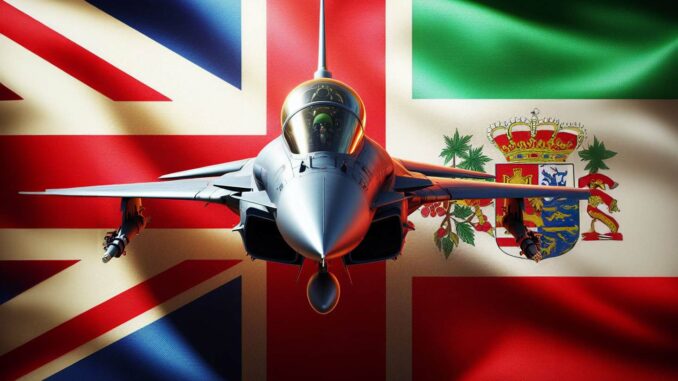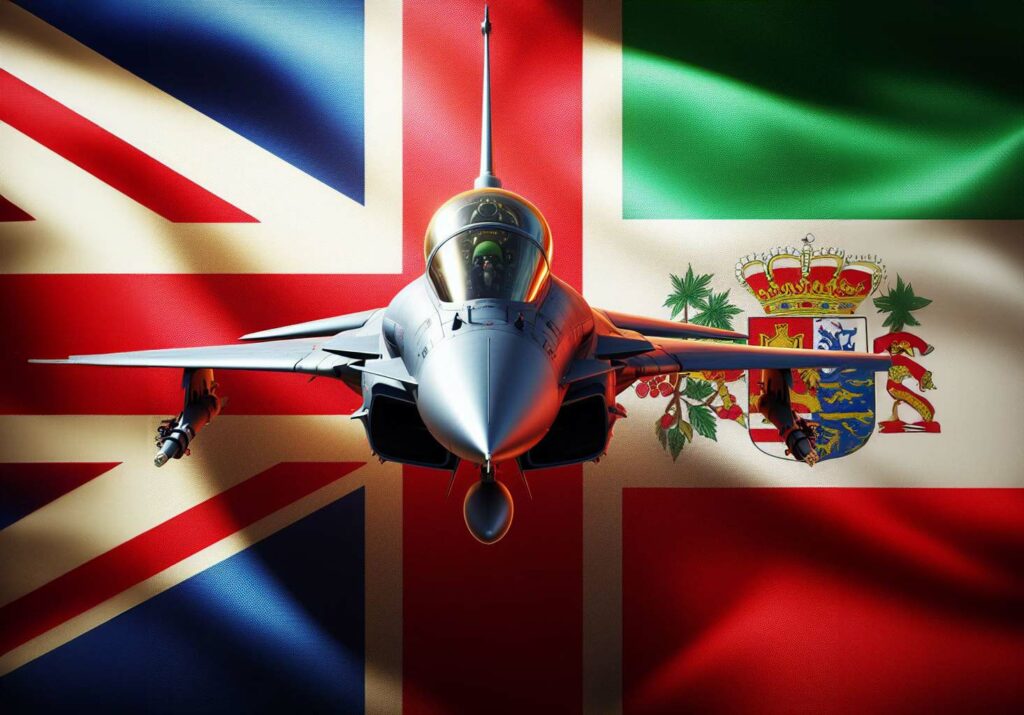
Japan, the UK and Italy join forces to develop an advanced jet fighter, a giant step forward in military and technological cooperation.
Merging expertise for a revolutionary fighter jet
In an era when geopolitical and technological alliances are redefining world powers, an unprecedented collaboration is taking place: Japan, the UK and Italy are joining forces to develop an advanced jet fighter. This project, known as the Global Combat Air Programme (GCAP), symbolizes not only a turning point in defence cooperation, but also a major breakthrough in military aircraft technology. Jointly led by leading industrial players – BAE Systems PLC, Mitsubishi Heavy Industries and Leonardo – the partnership aims to merge expertise and resources to produce a futuristic combat aircraft, potentially capable of redefining standards in aerial warfare.
The Genesis of a Strategic Alliance
A Triple Alliance for the Jet Fighter of the Future*.
The announcement of a three-way collaboration between Japan, the UK and Italy to develop an advanced jet fighter marks a significant strategic turning point in the global defense landscape. Each of these countries brings unique skills and resources to the table. BAE Systems of the UK, Mitsubishi Heavy Industries of Japan and Leonardo of Italy are well-established names in the defense industry, recognized for their engineering expertise and capacity for innovation. The structure of this partnership is designed to optimize the distribution of tasks, with teams working on specific components such as engines and avionics. This arrangement underlines an unprecedented collaborative effort, where geographical boundaries give way to a common goal: the creation of a revolutionary fighter jet.
The Context of an Innovative Alliance
Redefining Cooperation in Defense: Challenges and Prospects
This trinational initiative is part of a wider context of cooperation in defense and technological innovation. It represents a response to current geopolitical challenges, where the need to maintain technological superiority is crucial. The planned division of labor, with almost equal participation between Japan and the UK, reflects a desire to balance contributions and benefits. Italy’s role, though less prominent in terms of work share, is equally crucial, bringing its own technical expertise to the table. This alliance goes beyond the traditional framework of defense partnerships, integrating aspects of industrial and technological cooperation, while taking into account political and economic dynamics.
**Consequences of tripartite collaboration
The impact of such collaboration on the development of an advanced jet fighter is considerable, both in military and technological terms. On the one hand, it promises to bring substantial advances in fighter aircraft technology, potentially setting new standards in performance, stealth and electronic capabilities. On the other hand, this alliance could redefine geopolitical relations in the defense sector, by creating a new aeronautical power bloc. The potential participation of other nations, such as Saudi Arabia, underlines the appeal and strategic influence of the program, which extends beyond its founding members. In addition, the economic repercussions for the defense industries of the three countries are significant, with potential spin-offs in terms of employment, technological know-how and positioning on the world armaments market.

Future prospects and implications
This tripartite partnership is not just about creating a new fighter aircraft. It marks a change in the way nations approach collaboration in defense and technology. The involvement of major defense and aerospace companies such as BAE Systems, Mitsubishi Heavy Industries and Leonardo, as well as missile and avionics manufacturers, underlines the scope and complexity of this project. The implications go beyond the military sector, influencing international relations, arms markets and long-term defense strategies. This initiative could serve as a model for future international collaboration in other high-tech fields.
The alliance between Japan, the UK and Italy to develop an advanced jet fighter represents a major development in the defense and aeronautics industries. This collaboration, which transcends borders and traditional skills, is likely to redefine military aviation standards and change geopolitical dynamics. It underlines the importance of technological innovation and international cooperation in an increasingly interconnected world.
War Wings Daily is an independant magazine.